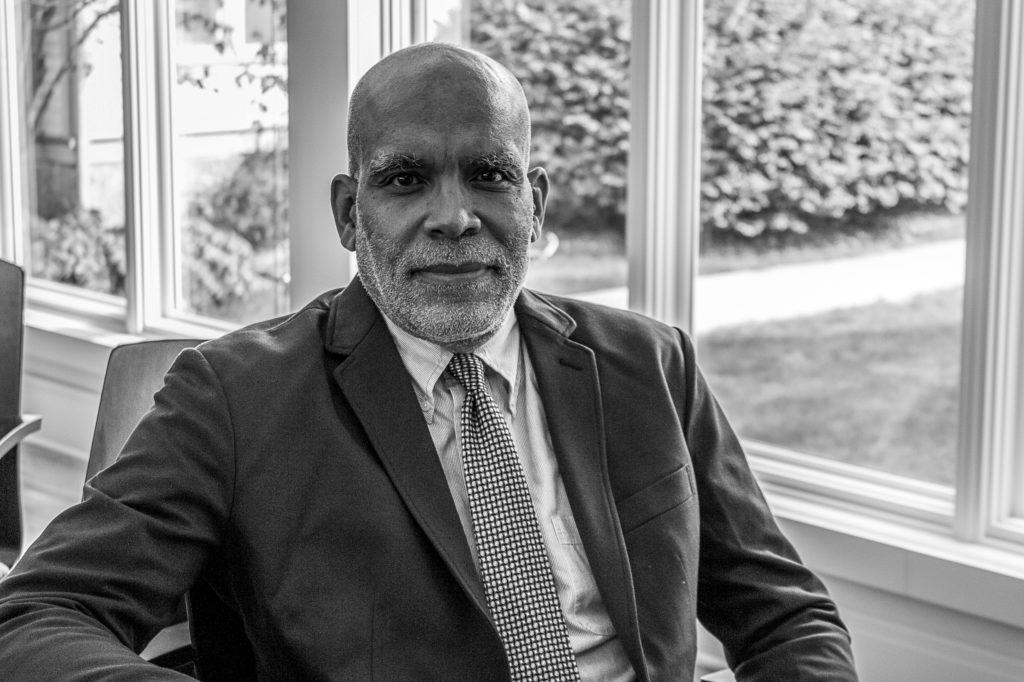By Emma Friedlander
friedlan@grinnell.edu
President Raynard Kington signed two statements in late November affirming the College’s continued support for undocumented students. The first statement is an open letter to President-elect Trump, published in “Inside Higher Ed” on Nov. 18.
It asks Trump to condemn the hate speech that is performed in his name and has received signatures from 110 college presidents. The second statement is a letter in support of the Deferred Action for Childhood Arrivals (DACA) program, a policy that delays deportation and provides eligibility for work permits for undocumented students. The letter was facilitated by Pomona College and has received signatures from 441 college presidents.
“The two topics of the letters — the broad issue of the values that we stand for and the specific issue of undocumented people and particularly undocumented students — we thought, given the outcome of the election, required us to give some statement,” Kington said of college presidents’ decision to create and sign the letters.
Throughout his campaign, President-elect Trump issued promises about policy changes that could jeopardize the status and safety of undocumented students. These promises included the repeal of DACA and the elimination of sanctuary cities. Until policy changes are actually implemented, however, the College can do little to change its own policies toward undocumented students.
“What we will have to do is be prepared to understand our options as an institution if the Trump administration chooses [policies] that would have an impact on our students,” Kington said. “But we’re a long way from that. Nothing, at the moment, has changed.”
Five days before Kington released his all campus email about the two letters, a group of Grinnell students published a petition in The S&B, which urged the College administration and Board of Trustees to implement new policies protecting undocumented students. Abdiel Lopez ‘18, Alexis Acosta ‘18 and Alfredo Villalobos-Perez ‘19 organized the petition under the guidance of Professor Tess Kulstad, anthropology. As of Tuesday, the petition has received over 320 signatures.
“We wanted more than just a display of support to the community. We wanted the school to ensure safety,” Lopez said.
The letter includes a number of demands, including the explicit dissemination of resources for undocumented students, the establishment of local churches as sanctuary churches and an increase in tenured faculty of color.
“I don’t see many resources for at-risk, undocumented or unauthorized students, and that needs to happen as soon as possible,” Lopez said. “I hope I and other students can organize and really pressure the administration to do so with confidence and support their own commitment to social justice.”
Although Lopez, Acosta and Villalobos-Perez’s letter urges immediate action, Kington explained that the College must first be advised by its legal counsel and greater College community before going forward.
“Many of us [college presidents] are engaged in a question of the legality of sanctuaries,” Kington said. “We’ll decide if we need to do anything based on more information coming from our lawyers and our member organizations who are already engaged in the discussion: the Associated Colleges of the Midwest, the Council of Independent Colleges, the National Association of Independent Colleges and Universities. … It’s really complicated, and it doesn’t make sense for each of us to figure this out. We’re going to do this as a community in many ways.”
Although Grinnell College does not have as many undocumented students as other colleges and universities, they do make up a portion of the student body.
“We treat undocumented students the same we’d treat any other student,” Kington said. “In essence, those students are international students. The difference is their special status and the fact that some of these students aren’t eligible for some types of financial aid, for example.”
Although undocumented students do attend Grinnell and are treated equally by the administration, Lopez stressed that campus resources and discussions should consider undocumented students more.
“I think students and faculty and staff really overlook the [undocumented] community because it’s not as visible as other identities. There is a risk in coming out of the shadows,” Lopez said. “Because of that, there hasn’t been much mobilization around the issues that affect undocumented students. … I’ve talked to many undocumented students on campus and they feel left out, or they feel like they have been sort of put on the margin.”
Beyond the Grinnell campus, Lopez hopes to put support structures in place for undocumented persons across Iowa.
“We’re also trying to contact student organizations in order for us to host ‘Know Your Rights’ workshops across the state, like in Marshall [County] and Tama [County],” Lopez said. “Those two counties have large undocumented populations. … I’m in this hub of privilege here at Grinnell College, and there are many undocumented people in the state. I would do a disservice to myself and to the community at large if I didn’t put into practice what I’ve been learning.”






























































